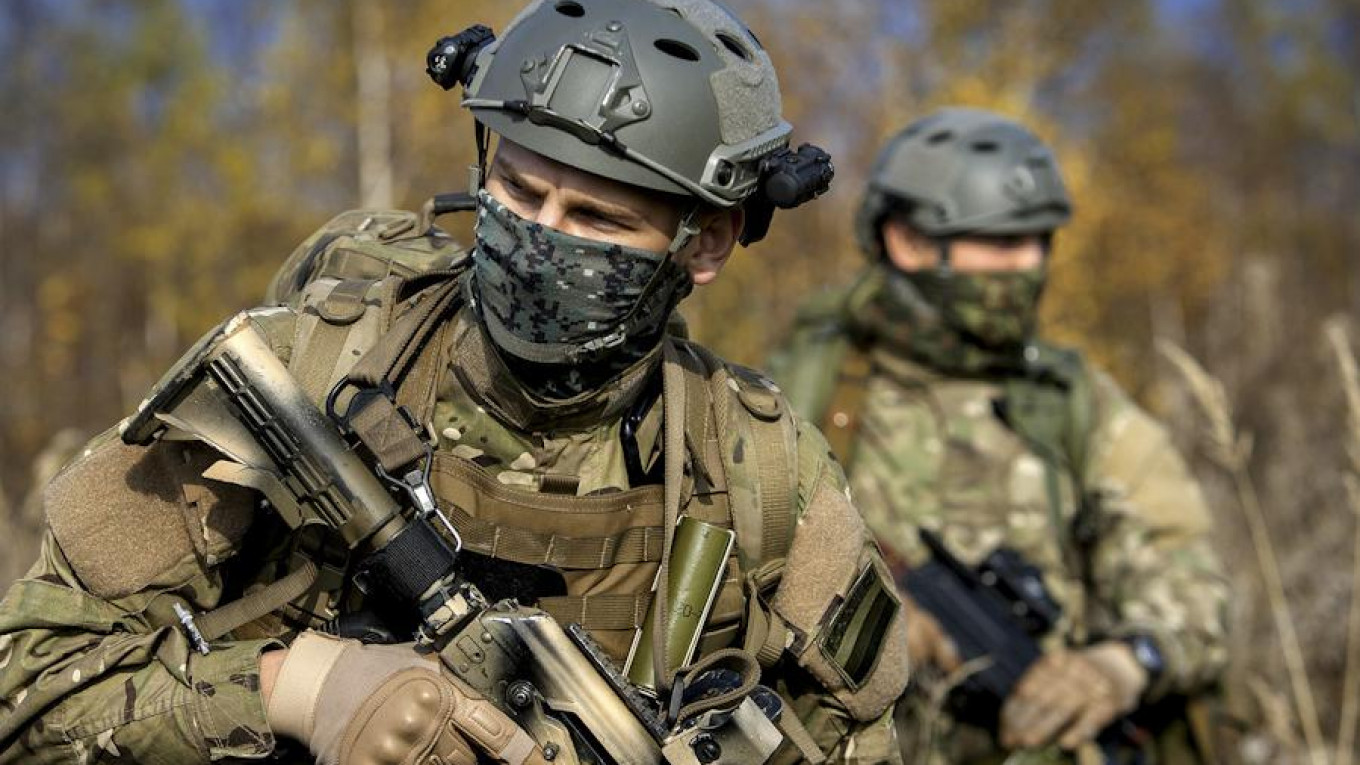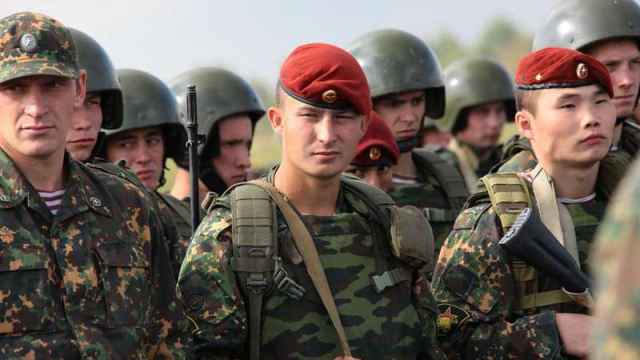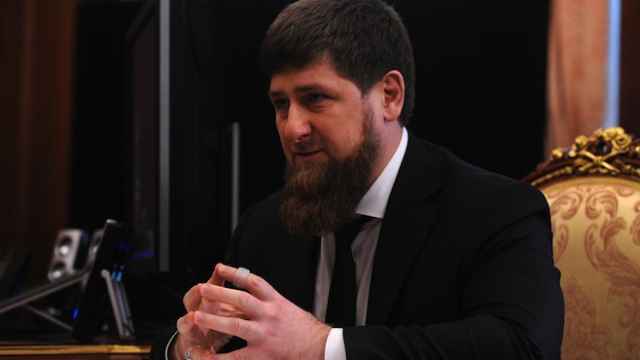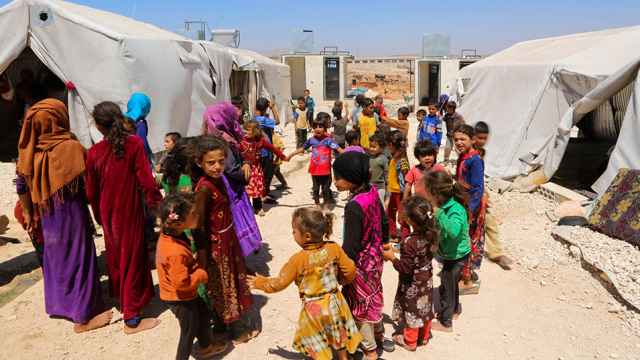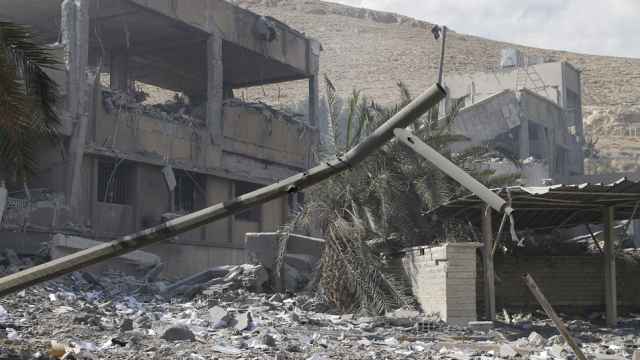Russian army personal are being briefed for deployment in Syria, according to military brochures obtained by Russia's Novaya Gazeta newspaper.
Leaflets filled with basic Arabic phrases and commands, health and safety advice, and tips on identifying Islamic State spies are being distributed to men in Chechnya's 46th OBRON brigade, the news outlet reported.
The brigade, which previously formed part of of Chechnya's notorious Sever special operations battalion, now belongs to Russia's National Guard.
The reports have fueled speculation that Moscow could be preparing to increase its troops within Syria, despite claims from the Kremlin that is was scaling down its military presence in the region. Moscow has previously supported Syria's President Assad with aid and air support.
One brochure is emblazoned with the logo of the Russian army — a red, white and blue star — and features a basic Russian-Arabic phrase book, a map of Syria and the Middle East, and an illustrated guide to military equipment and ranks within the Syrian army.
The second leaflet, which states that
it has been issued by the National Guard itself, features the emblem
of the 46th OBRON brigade.
The pamphlet contains several chapters describing Syria's language, festivals, currency and customs, as well as intricate descriptions of how to distinguish between different armed groups, military scouts, spies, and journalists.
The booklet advises troops to describe themselves as “Mukhabarat” — a common name for the Syrian intelligence services — if they feel that a Syrian civilian has “behaved inappropriately.”
The Syrian secret police have been accused of repeatedly violating human rights, eventually leading to protests — and the outbreak of civil war — in 2011.
Military experts say the brochures are similar to those handed out to Soviet troops before and during the Afghan war, Novaya Gazeta reported.
The newspaper also speculated that there was a deliberate misprint within the brochure, allegedly to give Russia's Defense Ministry the chance to distance themselves from the pamphlets. A stamp on one of the booklet's inner pages describes nonexistent 46th OBRON battalion, rather than Chechnya's 64th.
Troops from Chechnya were deployed in Syria in December 2016 in order to protect the Russian airfield at Hmeimim in Syria's Latakia province, according to Chechen leader Ramzan Kadyrov. He maintained it was "well-known" that Russian troops were not taking part in ground operations.
“It's well-known that Russian troops are not taking part in group operations in Syria,” Kadyrov wrote on his Instagram page in December 2016. “The Ministry of Defence has never made any secret of the fact it has an air base in Syria and that troops are there to ensure its security. The Chechen military will happily serve to protect this airbase if they receive such an order. The enemy must be destroyed in its lair before its tentacles can reach our homeland. [Terrorist groups] must be neutralized away from our homeland! We are ready [to fight] at any moment!"
The Caucasian Knot news website reported in December 2016 a unit of 500 troops was to be deployed to Syria to serve as military police. A group of 12 Chechen soldiers were reportedly dismissed for refusing to deploy.
The Russian Navy announced on Jan. 6 that its battlegroup in the Mediterranean Sea would be heading home after "completing its mission" in Syria.
Beleaguered Russian aircraft carrier Admiral Kuznetsov was the first to leave the group, followed by the missile cruiser Peter the Great. The battlegroup is headed toward the Russian port of Severomorsk, a town in the Murmansk region where Russia's Northern Fleet is headquartered.
A Message from The Moscow Times:
Dear readers,
We are facing unprecedented challenges. Russia's Prosecutor General's Office has designated The Moscow Times as an "undesirable" organization, criminalizing our work and putting our staff at risk of prosecution. This follows our earlier unjust labeling as a "foreign agent."
These actions are direct attempts to silence independent journalism in Russia. The authorities claim our work "discredits the decisions of the Russian leadership." We see things differently: we strive to provide accurate, unbiased reporting on Russia.
We, the journalists of The Moscow Times, refuse to be silenced. But to continue our work, we need your help.
Your support, no matter how small, makes a world of difference. If you can, please support us monthly starting from just $2. It's quick to set up, and every contribution makes a significant impact.
By supporting The Moscow Times, you're defending open, independent journalism in the face of repression. Thank you for standing with us.
Remind me later.



